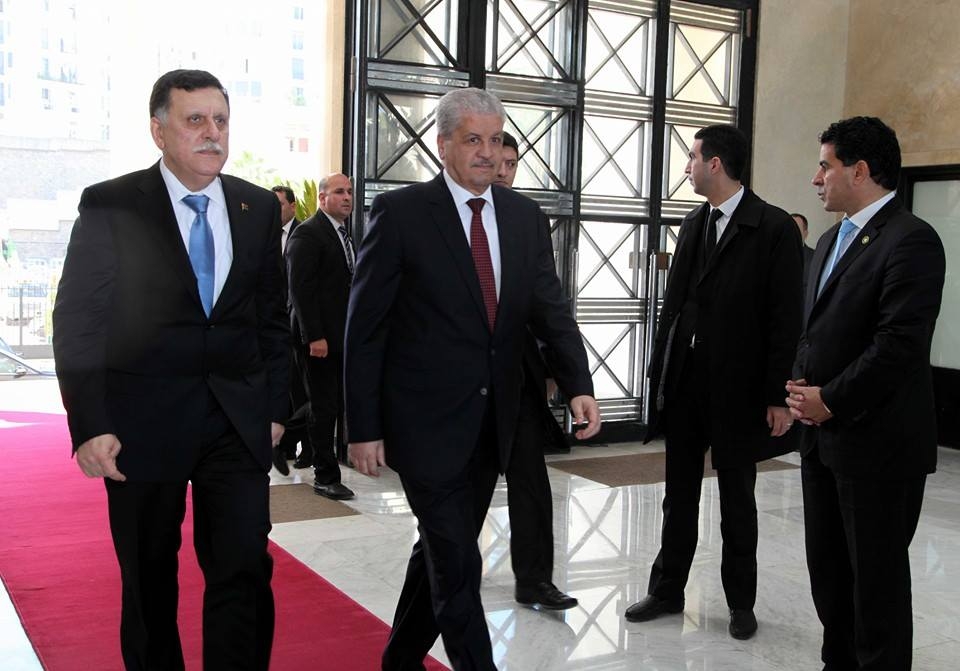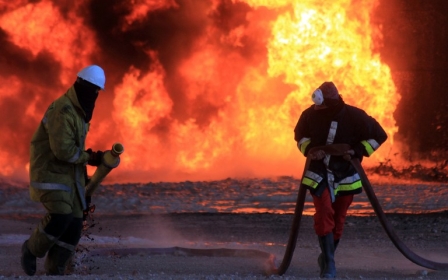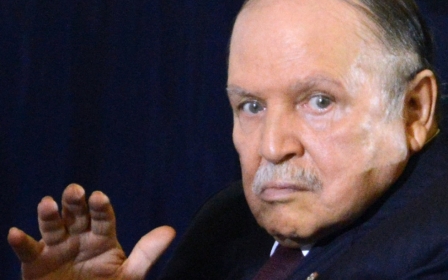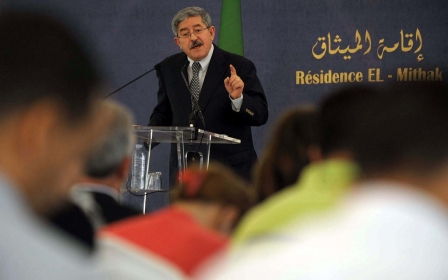Algeria emerges as quiet mediator in quest for peace in Libya

ALGIERS - With flights suspended between Algiers and Tripoli and officials expressing concern last week about a “massive and unusual flow of Moroccan nationals” crossing its territory eastwards, the situation in Libya has become a major problem for the Algerian government.
Those concerns were conveyed by Fayez al-Sarraj, the prime minister-designate of Libya’s UN-backed national unity government, during his visit to Algeria last week for talks with Prime Minister Abdelmalek Sellal and President Abdelaziz Bouteflika.
For Sarraj, Algiers is a must-visit destination because Algeria has emerged as a crucial regional mediator, not only in Libya but also to the south in northern Mali, where rival militant groups and the southern-based government are battling for territory.
Less than a year ago, Abdelkader Messahel, Algeria’s minister delegate for Maghreb and African affairs, said that “about 200 Libyan personalities” had already “secretly met in Algeria”.
Seif Eddine Trabelsi, a Tripoli-based journalist for Turkey’s Anadolu news agency, said that Algeria was now wielding real influence with groups on the ground in Libya.
“They have the capacity to impose an agreement on any group. And when they ask everyone to be seated around a table, they get what they want,” Trabelsi told Middle East Eye.
The challenge for Algeria though is colossal, with the countries sharing almost 1,000 kilometres of common borders.
With political power in Libya currently claimed by rival governments in Tripoli and Tobruk, Algeria’s foreign affairs ministry welcomed the announcement of the creation of a national unity government on 20 January, calling it a "significant step forward likely to preserve national unity”.
“In foreign policy, states’ involvement – not only in Algeria’s case, but also that of Egypt and Tunisia – is largely determined by geography,” Abdelaziz Rahabi, a former Algerian diplomat, told MEE.
“This is the difference between Algeria and the rest of the world: we are in favour of a political agreement between all parties because we will be the first beneficiaries. We are the first to want a strong Libya."
Intelligence network
In attempting to achieve that objective, Algeria can count on several assets.
Firstly, Libya is familiar territory. General Mohamed Mediene, better known as Toufik, Algeria’s former intelligence chief, had maintained good relations with both supporters and opponents of former Libyan leader Muammar Gaddafi since serving as a military attache in Tripoli in the 1970s.
Toufik was dismissed last year, but an intelligence officer told MEE that the network he had built was still useful.
"Actually, Algeria has maintained good relations with Libya since [Algeria's 1956 to 1962] liberation war," Rahabi said. “Our neighbour served as a logistical base for the arming of groups in eastern Algeria.
“Some feudal lords had links with the revolutionaries, largely because King Idriss Senussi [Libya’s monarch from 1951 to 1969, whose grandfather was born near Mostaganem] was of Algerian origin. And the Tuareg families on both sides of the borders have always been closely linked.”
Those links mean Algerians are well placed to intervene to ease tensions between Tuareg and Toubou militias in southern Libya.
Algeria has also built relationships with other Islamist groups and figures including the former Libyan rebel leader Abdelhakim Belhadj.
A foreign diplomat in Algiers told MEE that Rached Ghannouchi, the leader of Tunisia’s Ennahda party, also had a friendly relationship with Algeria after spending time in the country in exile in the late 1980s.
“He is a very good help for Algiers in terms of contacts,” the diplomat said.
"The unstated objective, supported by Qatar and Turkey, would be to weaken the extremist groups by supporting the role of the Muslim Brotherhood and non-jihadist Salafist groups."
Border force
In parallel with its political engagement in the country, Algeria also deploys its army along its eastern frontier.
For the past three years between about 30,000 and 40,000 Algerian soldiers have been stationed on the border with Tunisia and Libya.
"In the past year, our resources have been strengthened, particularly with armoured vehicles, tanks and fighter jets," an army official told MEE.
"This policy is costly in terms of men and equipment. If in five years from now the situation has not improved, then we will have to rethink our strategy," the official conceded.
Algeria is also strengthening its western border amid concerns about the numbers of Libya-bound Moroccans attempting to enter the country, deploying new patrol helicopters and more intelligence officers there and accelerating construction of a 160km border trench.
The border between Morocco and Algeria has been officially closed since 1994 when Morocco’s security service accused Algerians of being responsible for a bombing in Marrakech.
With the US reported to be considering military action in Libya to combat the Islamic State (IS) group’s growing presence, Algeria is opposed in principle to any foreign interference, with a well-informed source telling MEE that political dialogue remains the "preferred" option.
"We have ongoing discussions on this subject," the source said. "If ever the situation worsens, if ever the Islamic State fighters get close to the Tunisian or Algerian border, we could intervene."
Another army official added: "The chief of staff and deputy defence minister does not object but the army is, for the time being, opposed to this option.”
'Wrong perception'
For Rahabi, the only error in Algeria’s response to recent events in Libya has been its “wrong perception of the new Libyan reality" that followed the fall of Gaddafi.
“The emerging political forces are not particularly close to Algeria and we lost the sympathy of the Libyans. We are paying for our stubbornness in supporting Gaddafi until the last minute and hosting his daughter Aisha," he said.
Gaddafi's wife, Safia, his daughter Aisha, his sons Hannibal and Mohammed, accompanied by their children all fled to Algeria with the help of the authorities in August 2011.
"The National Transitional Council [the Libyan rebel movement established in 2011 to fight Gaddafi) has always accused Algeria of being pro-Gaddafi, but this is wrong," a foreign affairs official told MEE.
"Algiers was not more pro-Gaddafi than it was against the dismantling of Libya. And today, everyone from the European Union to the United States via Egypt, which initially had ruled in favour of the partition, all agree to find a political solution and to preserve the territorial integrity and sovereignty. This was Algeria’s position since the very beginning."
Maryline Dumas, a journalist in Tripoli, told MEE that Algeria still commanded the respect of many Libyans for the way it had balanced its relations with different factions since the country's collapse into war and chaos in 2011.
“Some accept the UN agreement and suggest that a mediation conducted abroad with a third party is the right solution. Others feel they do not need foreign interference and that they can solve the problem together,” said Dumas.
“In general, I think there's a certain respect for Algeria which maintained a position of impartiality. The Libyans also know that whatever Algeria says, no military action is being planned, and that's a positive point.”
Translation from French (original) by Ali Saad.
New MEE newsletter: Jerusalem Dispatch
Sign up to get the latest insights and analysis on Israel-Palestine, alongside Turkey Unpacked and other MEE newsletters
Middle East Eye delivers independent and unrivalled coverage and analysis of the Middle East, North Africa and beyond. To learn more about republishing this content and the associated fees, please fill out this form. More about MEE can be found here.




